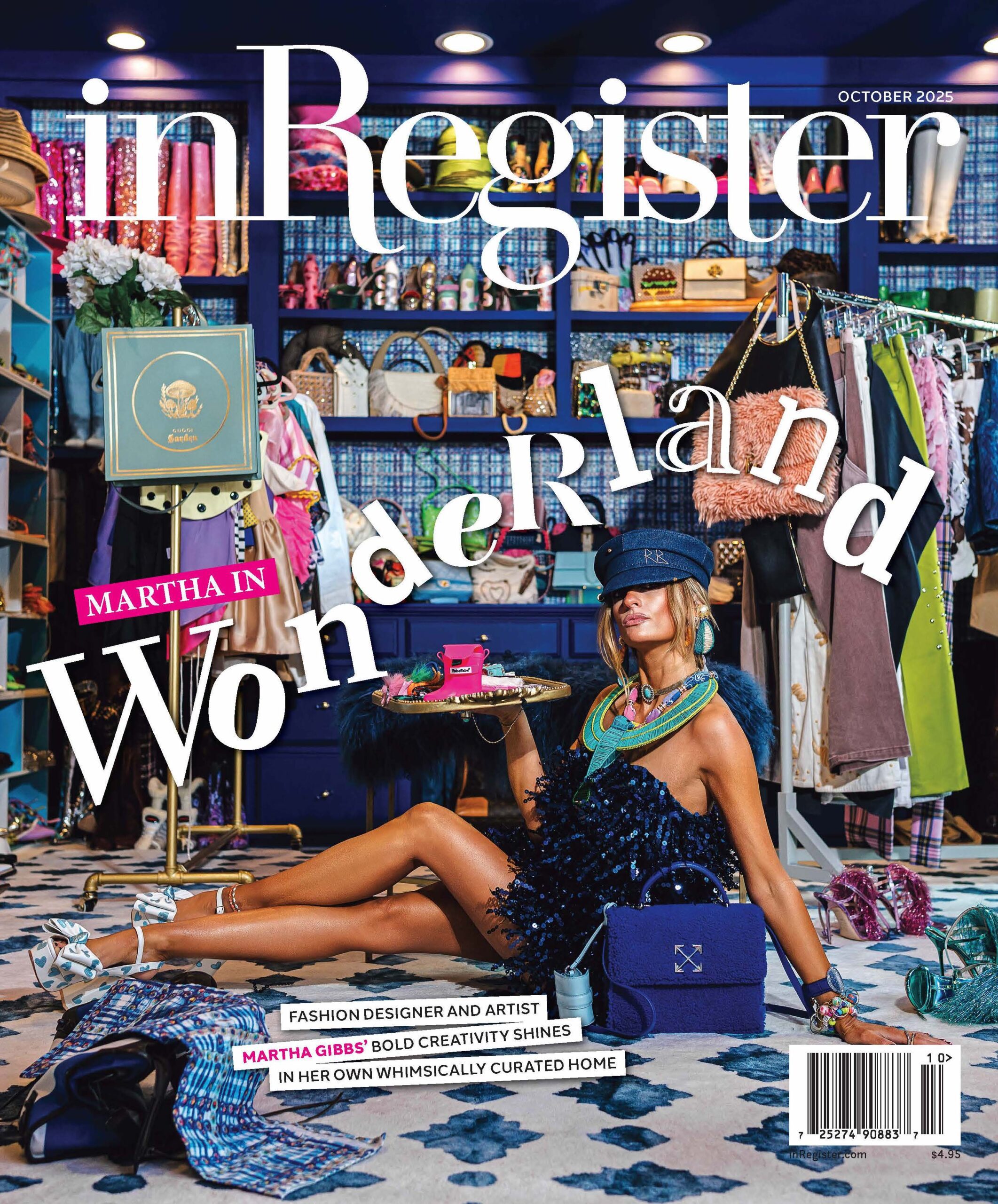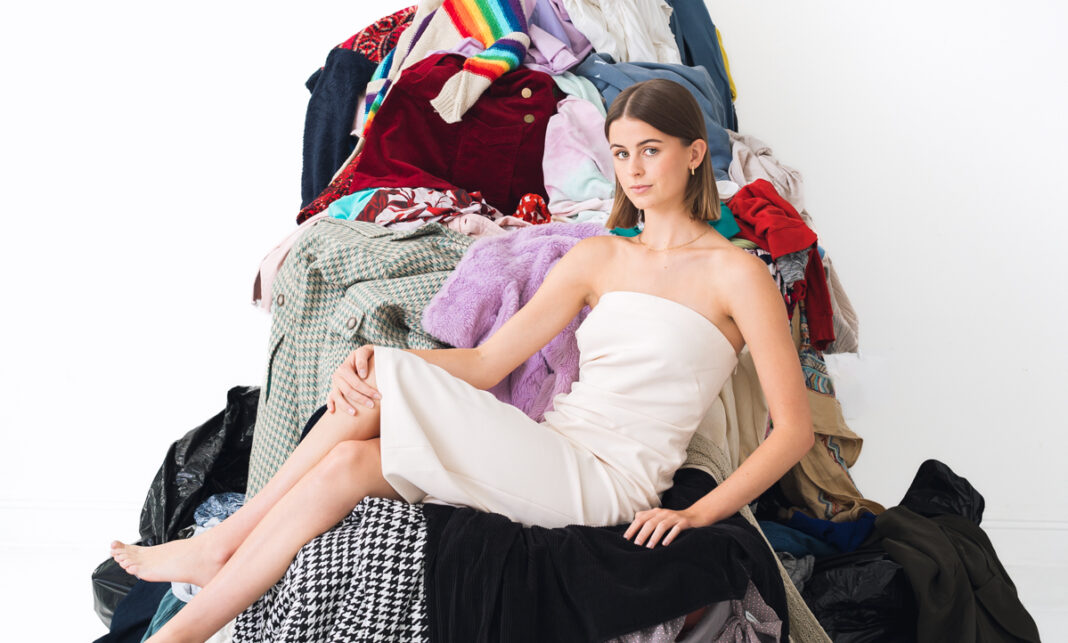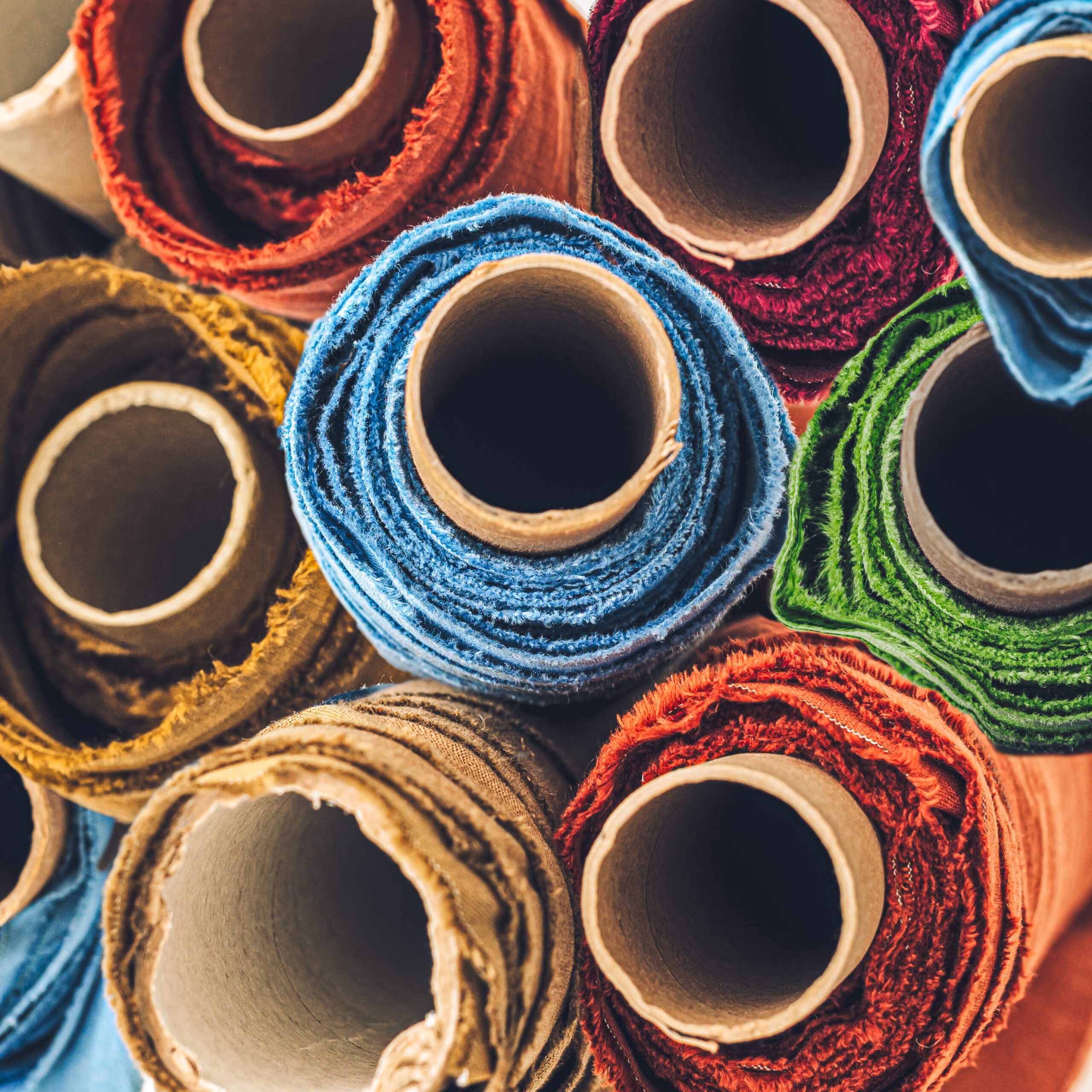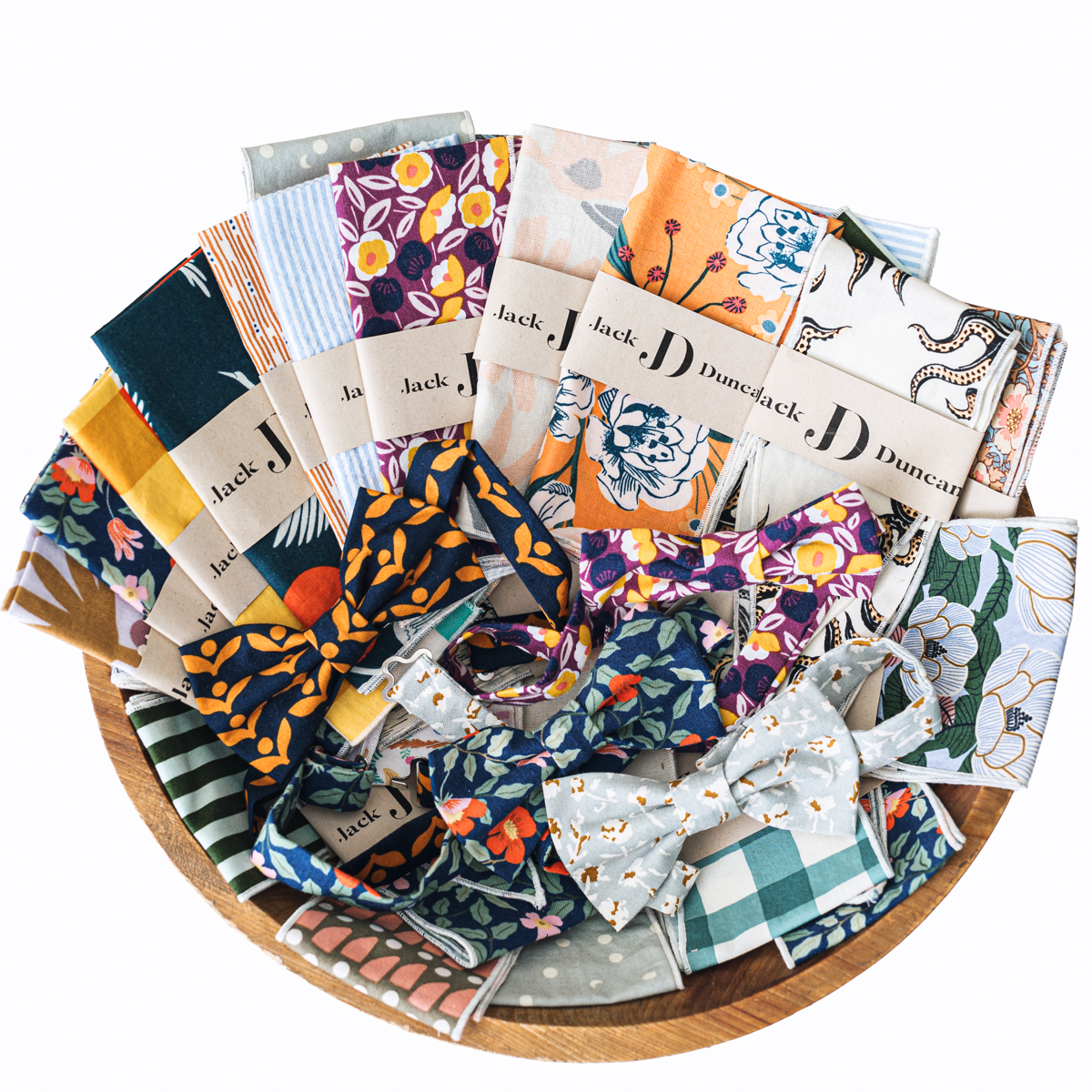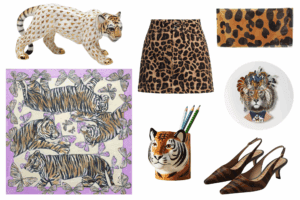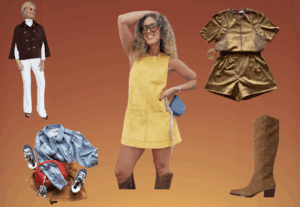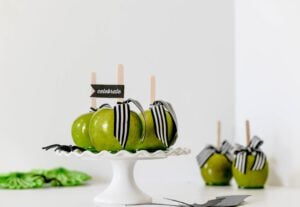Clothes Minded: Textile sustainability is trending in Baton Rouge
Did you know that roughly 85% of all textiles end up in landfills every year? With fast fashion becoming cheaper in price and lower in quality, textile waste is at an all-time high. Big-name brands are speeding up the fashion cycle to keep up with fast-moving trends. As a result, natural water sources are being tainted with dyes and chemicals, landfills are bursting with more textile waste than ever before, carbon emissions are increasing and people across the globe are working in unsafe conditions to produce clothes we wear once for the sake of capturing the perfect Instagram photo.
Local clothing designers and vintage curators offer alternatives to fast fashion, providing stylish clothes with less of an environmental impact. More designers are making clothes with biodegradable natural fibers like cotton, linen, bamboo and hemp. Compared to synthetic materials like polyester, nylon, spandex and rayon, these natural textiles break down over time into organic matter that doesn’t cause harm to the environment.
Taking sustainability a step further, vintage and thrift curators delay and sometimes prevent clothing from reaching a landfill. By recycling good-condition clothing, consumers can still shop and fill their closets with stylish pieces without encouraging brands to produce new products.
On the following pages, get to know three Baton Rouge businesses revolutionizing the fashion industry with eco-friendly practices, all while maintaining a stylish edge.
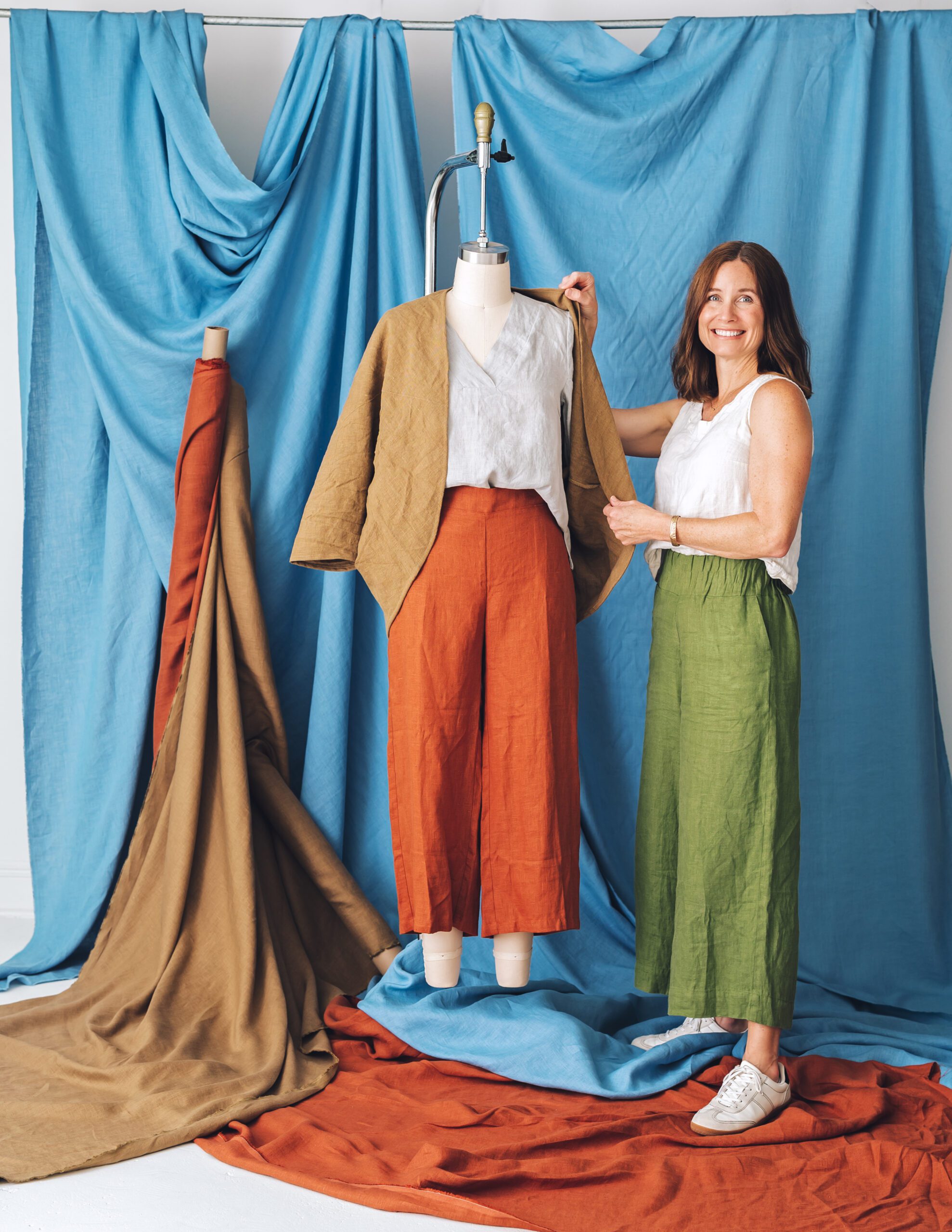
The Maybe Collection
Ditch microplastics and lean into linen
Paula LaFargue loves linen. She loves how it’s textured, made of natural fibers and breathable in the Louisiana heat. She appreciates the fabric’s understated and effortless beauty. Typically, she won’t iron her linen clothing because she doesn’t mind the wrinkles.
When she discovered an online retailer that sold small batches of linen in 2016, she knew it was time to start her own linen clothing company. In 2017, the Baton Rouge native launched The Maybe Collection, an online linen clothing brand that sells women’s linen tops, pants, dresses, jumpsuits, kimonos and headbands. She also has a silk line with tops, pants and dresses made from raw silk.
The natural-looking fabrics are dyed in muted and earth tones ranging from rust to teal. The chemical dyes and linen are OEKO-TEX certified, meaning they are harmless to human health. The Maybe Collection avoids plastic packaging by using selvage pieces to tie up each garment, wrapping it in tissue paper and enclosing it in a paper envelope. Larger orders are shipped in a 100% recycled poly mailer.
“Sustainable is a tricky term for me to use when it comes to clothing because it’s a consumer product,” LaFargue says. “I hope people think of me when they’re shopping out of necessity. The most sustainable thing is to shop thrift, recycle, make your own clothes or wear what’s in your closet.”
With her team of local seamstresses, she makes pieces for customers to mix and match and wear over the years. She offers made-to-order clothing and keeps a small inventory of items in stock.
“I have young girls,” LaFargue says. “They want certain brands. I get why they want it, but the idea would be to create a culture where we don’t even think that way. Why do my daughters feel like they need 50 pieces of clothing? The waste. The impact on the environment. The exploitation of workers. It’s a no-brainer why fast fashion isn’t a good habit.”
In the thick of the social media age, when people are embarrassed to be photographed in the same outfit more than once, it’s understandable why the number of times a garment is worn has declined by 36% in the last 15 years, according to earth.org. Many consumers are throwing away their clothes after 7 to 10 wears. Throwaway culture is an epidemic that is only perpetuated due to the lower quality and overly trendy garments sold by fast-fashion brands.
“A lot of times people think that sustainable clothing is more expensive, but there really is a cost for the fast-fashion brands,” LaFargue says. “It’s not on the price tag. It’s in other places.”
As the saying goes, every action has a reaction. How you shop in Baton Rouge directly and indirectly affects people in other countries. Making eco-conscious and ethical clothing choices means considering why the cost of your garments is so low. It’s questioning what materials are being used to produce your clothes, what is in the dyes that make the colors so vibrant and whether the people creating your clothing are in safe working conditions.
Through The Maybe Collection, LaFargue spreads awareness of the negative environmental impact of synthetic garments and hopes others will join her in discovering the comfort, style and eco-friendliness of natural fibers.
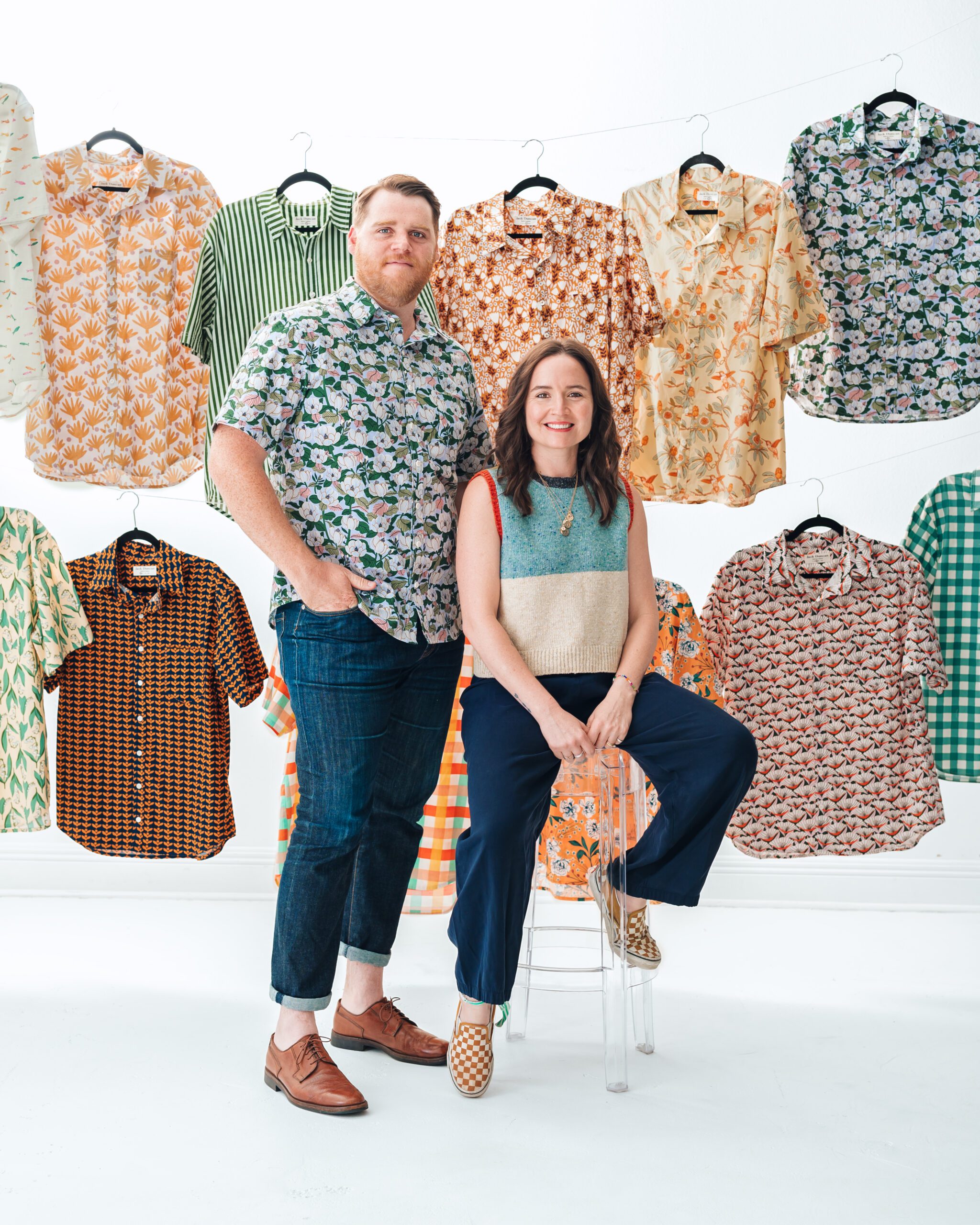
Jack Duncan
This husband-and-wife duo makes cotton button-ups and more for the everyday man
Dave and Brittany Tubb Duncan’s love story starts in Vietnam. They were both overseas teaching English as a second language, had a passion for making clothes and dreamed of starting their own clothing business.
In Vietnam, they regularly saw talented tailors, seamstresses and bountiful fabric stalls. When they returned to the U.S. in 2016, Dave arranged for Brittany to take private sewing lessons as a birthday gift. Once she learned the basics, she taught Dave how to sew. The couple went from sewing masks during COVID-19 to making button-up shirts. Fast forward to 2024, and they are the co-founders of Jack Duncan, a sustainable and ethical clothing company specializing in men’s shirts.
“Dave has always had an interesting taste in attire,” Brittany says. “I always called them his jazzy shirts.”
Dave’s bold and funky taste is captured throughout the Jack Duncan collection. The rich-colored shirts come in floral, nature-inspired, animated and geometric prints. The shirts are made from 100% cotton (mostly Japanese cotton), natural corozo (nut) buttons and OEKO-TEX approved dyes.
Growing up in New Zealand around forests, mountains and the ocean, Dave’s appreciation for nature was a part of his upbringing. He knew if he started a business, he wanted it to be eco-friendly.
“We don’t really see it on this side of the world, but when I was traveling in Cambodia, we used to see busloads of women in the countryside going to the factories to work,” Dave says. “You see the effect it has on a country where fast fashion is being made. We’re not perfect, but we have learned a lot and have become very aware of the effect that fashion, especially fast fashion, has on people and the environment.”
These pre-shrunk cotton button-ups are designed to be durable, comfortable, breathable and washable. They are the type of shirts you wear for football games, beach trips, festivals, parties and any event that calls for character. Jack Duncan also has a children’s line with baby and toddler clothes made from the same fabrics as the men’s shirts so your little one can match with their favorite guy. With the remaining scrap fabrics, the couple makes men’s accessories like bow ties and pocket squares. The couple plans to add neutral and solid-colored shirts, long sleeves and lightweight jackets to the shop.
After two years of running the business online and participating in pop-up events around town, Brittany and Dave opened their first storefront in 2023 at The Shoppette, a petite boutique on South Eugene for rotating vendors. Located next to Mimosa Handcrafted, customers can shop for men’s shirts, accessories and children’s clothing in person.
“The way people treat their clothes is like McDonald’s,” Dave says. “If you can buy a cheap shirt for $5 and you want a new nice-looking T-shirt all the time, you’re just unconsciously buying and throwing away. Who is that affecting? It’s affecting some community I don’t know about on the other side of the world.”
The Jack Duncan designers strive to create long-lasting garments that can be re-worn and restyled, leading to less textile consumption and waste.
“We don’t heavily market as a sustainable brand because it’s just part of our ethos,” Dave says. “It’s not something we chose as a marketing strategy to sell things.”
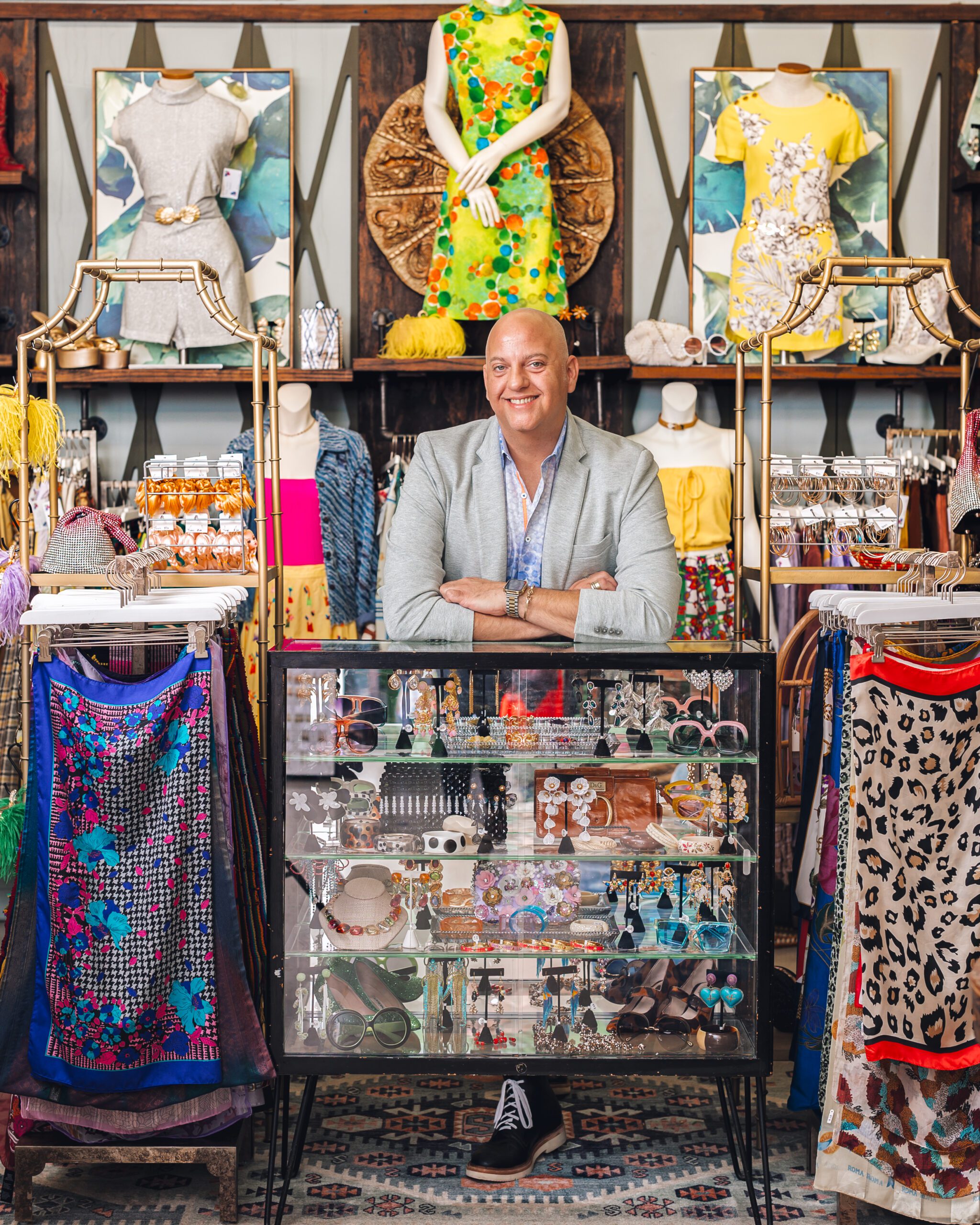
Time Warp
Shop secondhand at Louisiana’s largest vintage clothing and accessories boutique
Vintage clothing in Baton Rouge wouldn’t be where it is now without Joshua Holder.
As the owner of the 24-year-old vintage clothing boutique Time Warp, he has dressed generations of creatives who have stepped foot into his vintage happy place since 2000.
His Mid City boutique and gift shop has been the go-to place to find rare vintage clothing and accessories like 100% cotton jeans, authentic leather biker jackets and elegant evening dresses from the 1950s through the 1990s. The boutique has continued to evolve, adding vintage T-shirts, cut-off shorts and modern gifts, accessories and home goods.
Time Warp is a true reflection of its name. Walking into the store feels like time-traveling through the decades. The clothing racks are intentionally curated and labeled by decade and style. Instead of seeing sections divided by gender and age, you’ll see signs like “1950s,” “Y2K,” “little black dresses,” and “sequins and beads.” Nostalgic name brands like Betsey Johnson, Rockies and Wrangler can be found throughout the Government Street storefront. And the store’s online special collections sell iconic vintage designer pieces by Dior, Fendi and Yves Saint Laurent.
“Twenty years ago, fashion magazines weren’t really focusing on vintage,” Holder says. “They were always like, ‘oh, that’s old.’ Today, people realize vintage is the future. They didn’t get it then, but they get it now.”
When he first opened his store, customers came to shop for unique vintage gowns and decade pieces for costume parties. Now, customers looking for something original buy their everyday wear and special occasion attire from the store’s curated collection.
Holder and his team keep up with street style, magazines and runway shows to identify the original pieces behind the trends. Think of returning styles like 1970s bell-bottom jeans, 1980s athletic bodysuits and 1990s plaid skirts. Fashion trends are cyclical; they always come back around.
Holder works with “pickers” who find vintage pieces from around the United States and ship the pieces to Time Warp twice a month. The roughly 1,300 garments that the store receives in every shipment get washed, mended and steamed. Some pieces get a complete makeover, being cropped, dyed or customized. Vintage clothing curation is an art and Holder has mastered it.
Since the pandemic, Time Warp’s online sales have doubled, and the store’s social media engagement continues to steadily climb. Some of Holder’s younger customers shop primarily secondhand and avoid fast fashion brands like Shein and Forever 21. A global study published in The Lancet in 2021 found that over 45% of young people said their feelings about climate change negatively affected their daily life and functioning. People in the study felt more betrayed than reassured by the government’s efforts toward climate change. Could these feelings be tied to young people’s desire to take matters into their own hands and become eco-conscious consumers?
“The younger people today are taking the climate crisis a lot more seriously than my generation or people who are in their late 40s,” Holder says. “Our generation is more like, we’re gonna recycle our plastics. These kids are like, I’m not wearing a thing from the mall.”
Whether customers shop vintage to stand out in their own style or to reduce textile waste, shopping secondhand instead of fast fashion has many perks. Piecing together vintage garments from different eras allows consumers to create their own signature look. It’s a bonus that these long-lasting clothing pieces are spared from landfills and given a second chance at life.
“Time Warp is for creating one’s armor to make people feel like they can go out and conquer each day through their personal style,” Holder says. “Time Warp is a safe space.”

